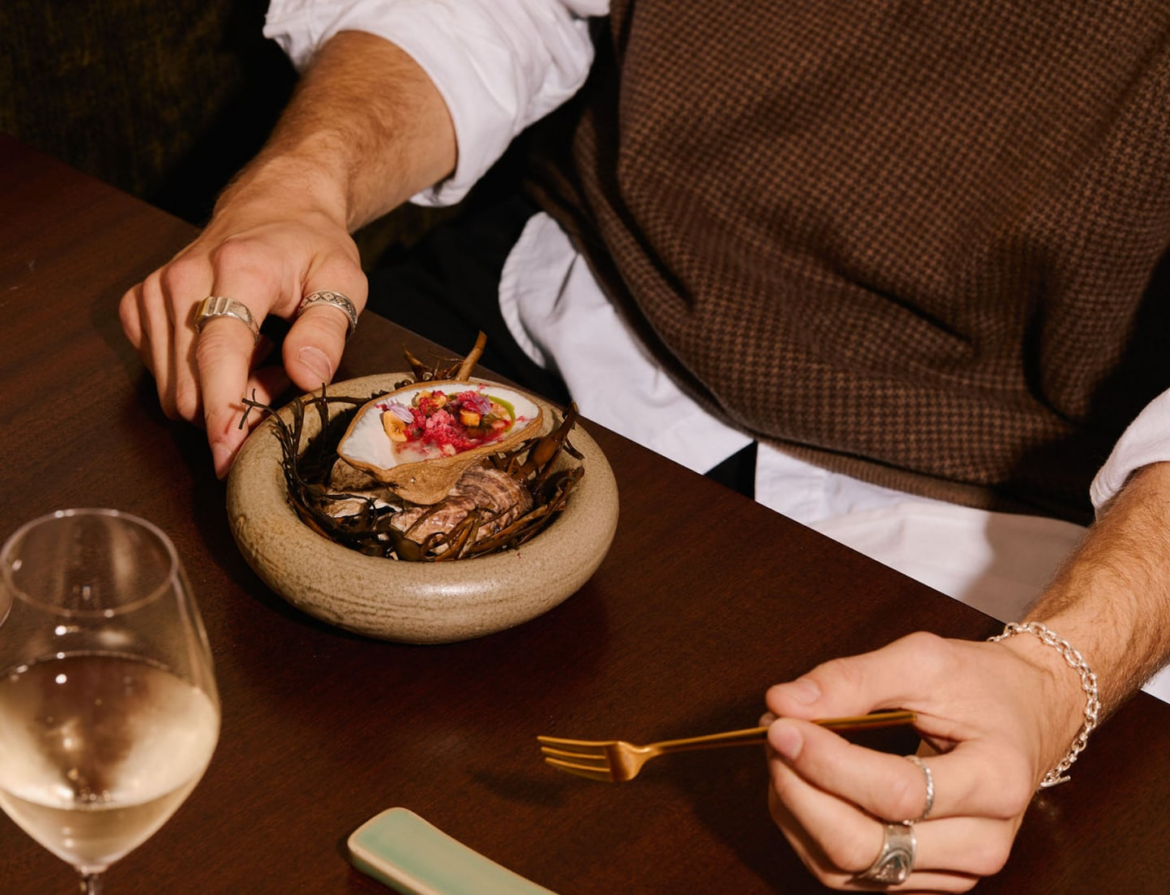Many Rhode Island chefs steer clear of attaching themselves to a fine dining moniker altogether, wary of the baggage it carries: a high price point, pretension, exclusivity, and unsustainable economics. But walk into some of the state’s most lauded restaurants and you’ll find a full dining room, caviar, bespoke tableware, and tasting menus. It’s all the trappings of elite gastronomy but reinvented: less white-tablecloth orthodoxy, more intentionality, approachability, and a focus on the community it’s rooted in.
For Claudine, however, embracing a fine dining epithet appears to be working: reservations are booked through August.
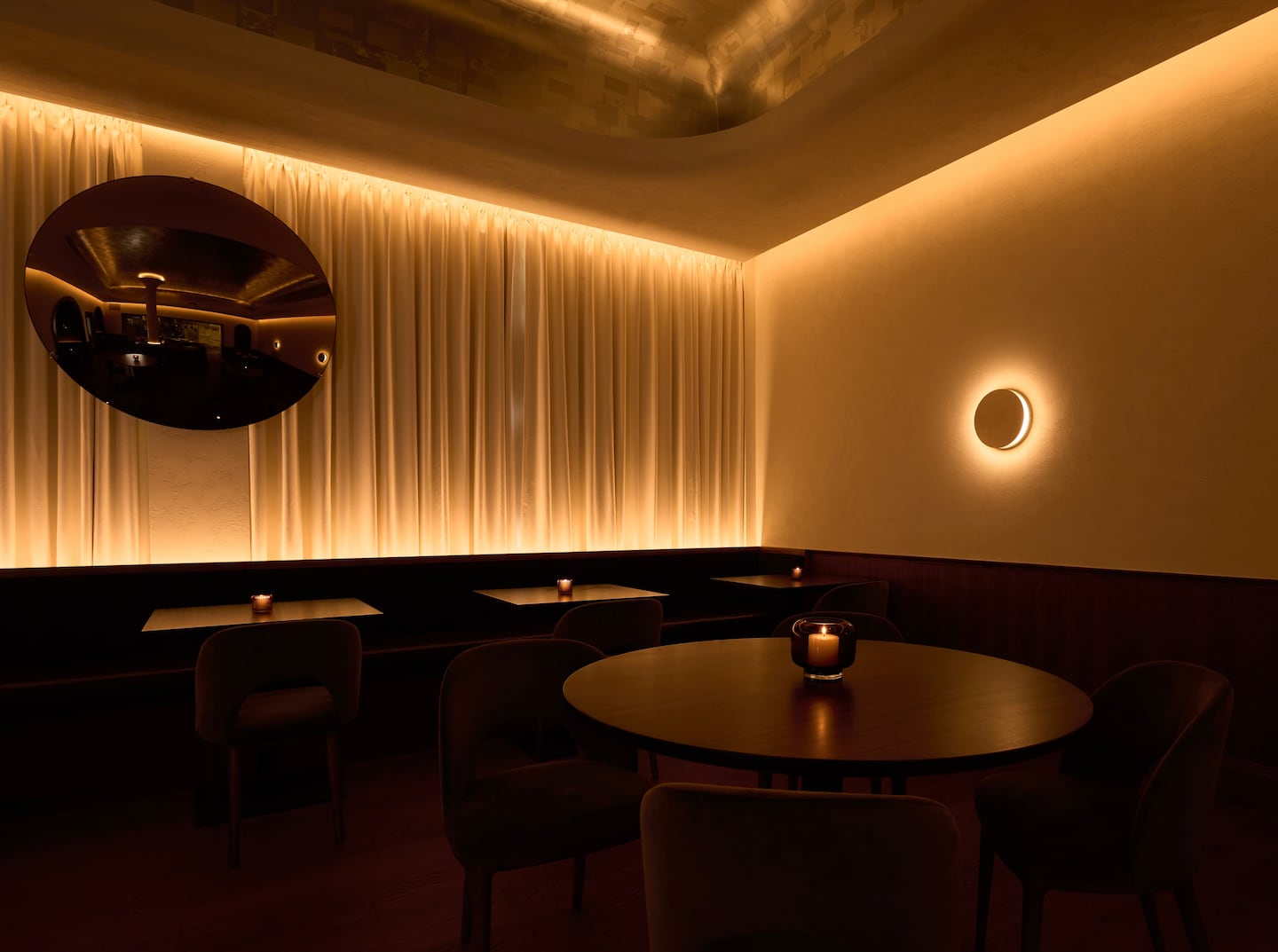 The interior of Claudine, a fine dining restaurant in Providence, Rhode Island.Maurisa Arieta
The interior of Claudine, a fine dining restaurant in Providence, Rhode Island.Maurisa Arieta
“I think that when I was a young boy, fine dining was something that maybe your parents would show you, or you would see on television,” said Josh Finger, Claudine’s co-founder and executive chef who believes there’s a wider audience for fine dining than ever before. “Now, with the rise of people being foodies, it’s very cool. And the exposure is incredibly high, which I think only helps.”
Chefs across the state embraced Claudine’s arrival, but are watching closely. Some said the traditional, high pressure fine dining model comes with a unique set of challenges, but they also recognize its place in Rhode Island’s culinary culture. They’re also asking: Could Claudine’s success set the stage for a fine dining resurgence in the smallest state?
A few other new restaurants have also embraced fine dining culture, including Audette, a French restaurant, and Remy’s Loose, located in the Chanler at Cliff Walk. Both are in Newport.
“Rhode Island is interesting because it’s a microcosm of the greater world,” said Matt Jennings, who previously headed the now-shuttered Farmstead in Providence for eight years.
Not long after opening Newport’s Tallulah on Thames in 2010, chef-owner Jake Rojas said the restaurant was quickly defined as a “special occasion restaurant” while being surrounded by more casual spots. It closed six years later.
“No one wants to have a special occasion restaurant, because that’s an unsustainable restaurant,” said Rojas, who previously cooked at Joël Robuchon’s three-Michelin-star restaurant in Las Vegas, where guests could pay upwards of $1,000 for more than a dozen courses with wine pairings. He now operates Tallulah’s Taqueria in Providence on a fast-casual model and serves as a consulting chef for other restaurants. “What does the word ‘fine dining’ mean? I think it just really depends on the experience of the guest, which comes down to perception.”
He expects Claudine will have a place in Rhode Island, and points to Oberlin, a James Beard Award finalist for Outstanding Restaurant this year, as a place he describes “rides the line” of fine dining without self-identifying as such.
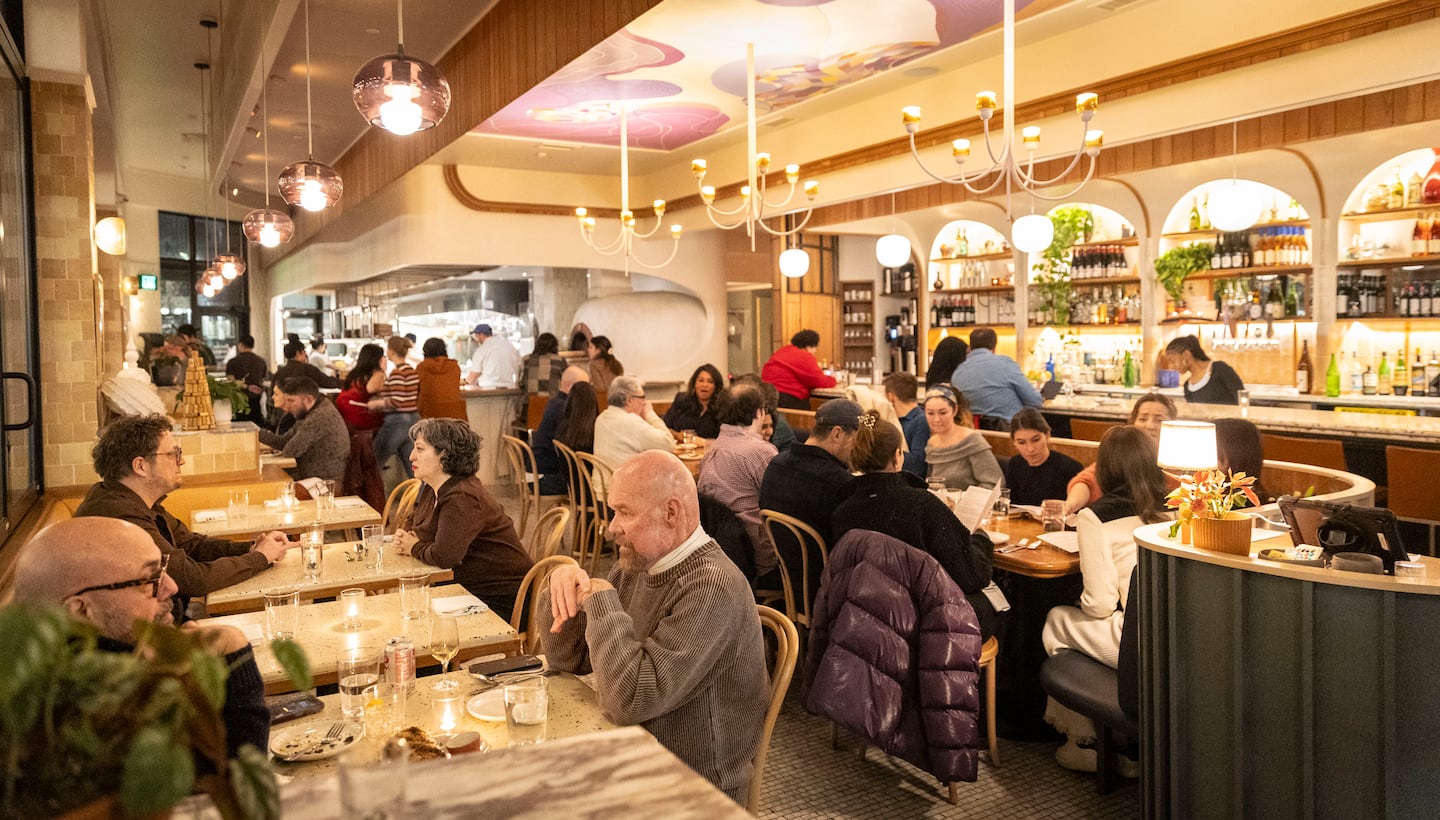 Patrons dine inside Oberlin in Providence, R.I.Brett Phelps for The Boston Globe
Patrons dine inside Oberlin in Providence, R.I.Brett Phelps for The Boston Globe
Before Oberlin, chef Benjamin Sukle owned Birch, the tiny haute cuisine hotspot in Providence that opened in 2013. The restaurant was praised nationally, but closed six months into the pandemic.
Two years later, Big King and North, two beloved Providence restaurants by chef James Mark, also closed, as did Chez Pascal under chef Matt Gennuso.
“When Birch closed, and then when Big King closed, I felt like, I don’t say the word ‘shameful,’ but I felt like it was a big hole missing in what to me rounds out any place that’s to be considered a dining destination,” Sukle said.
No matter the concept — fine dining or fast casual — the biggest challenge is always the same: keeping the seats full.
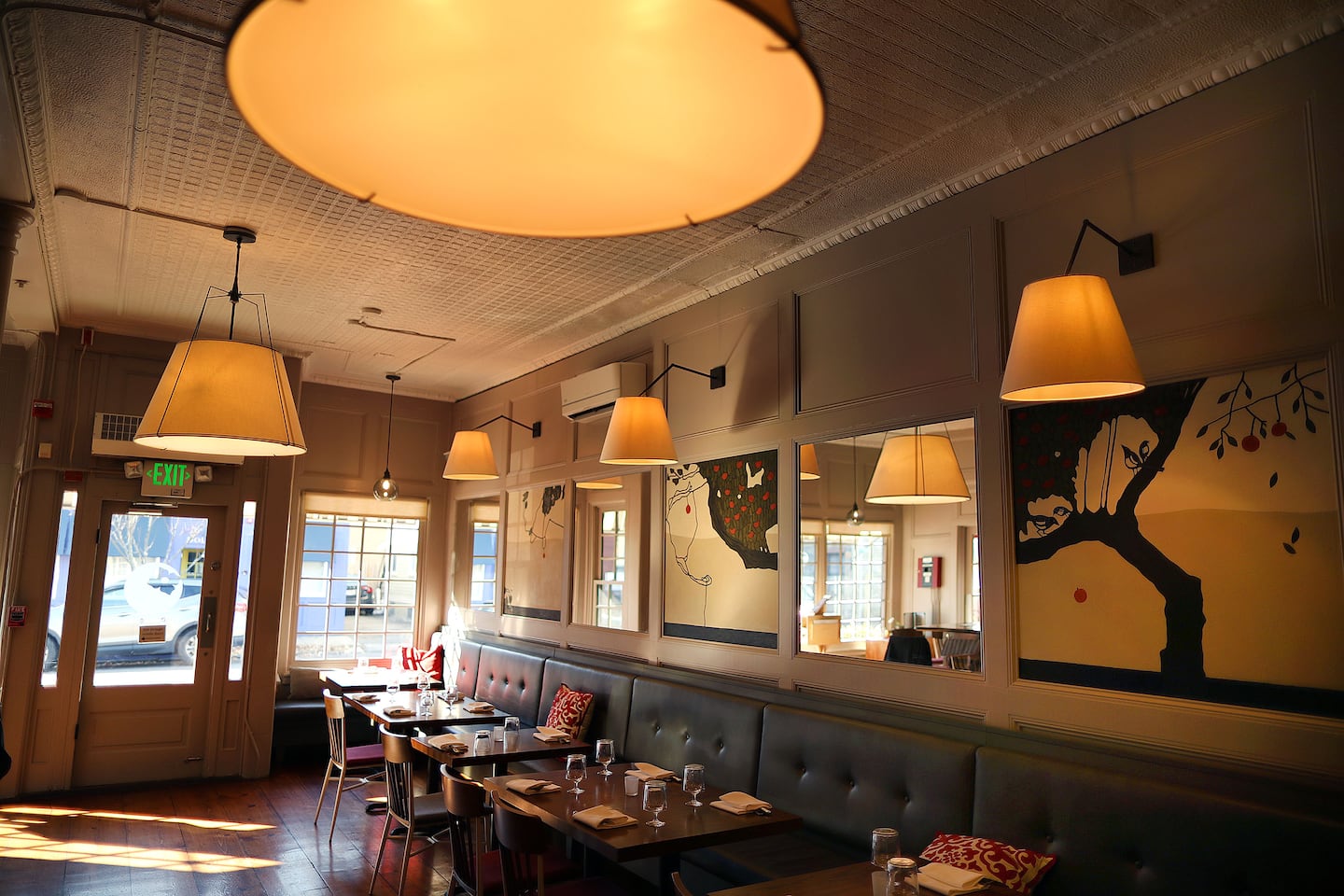 Inside of Persimmon in Providence, R.I.John Tlumacki/Globe Staff/The Boston Globe
Inside of Persimmon in Providence, R.I.John Tlumacki/Globe Staff/The Boston Globe
Champe Spiedel, the chef and co-owner of Persimmon in Providence, said he views Michelin-starred Per Se, The French Laundry, and Daniel in New York City “as true fine dining temples.” But he recalled sharing lunch with his wife, Lisa, at a “hot new restaurant” in New York City and found it “the stalest, most boring concept.” That’s when he decided Persimmon’s elevated experience would be different.
“We want to take all the trappings — all the plates, and the silver, and the crystal, and the hospitality,” said Spiedel. “And the food as well — I wanted the same ingredients, I just wanted to do it a different way.”
Speidel, who has been nominated for multiple James Beard awards, said his five-course tasting menu lends itself to a fine dining-type experience. “But if you just want to pick your daughter up from sports and she’s in a hoodie and shorts, and you need a martini and something to eat? We got you,” he said.
Many restaurants are embracing what Speidel describes as “modern fine dining,” which strikes a balance between elevated and approachable.
The debate over fine dining comes as the Michelin Guide — which recognizes outstanding restaurants with one, two, or three stars — is coming to Boston. Some chefs applauded the move. Outside of Boston, critics said they are skeptical of Michelin’s traditional benchmarks, and said it overlooks smaller markets, like Rhode Island.
“There are a lot of places in New England that are ‘Michelin-worthy’ but would never get that recognition without the guide expanding here — including my own,” Sukle previously told the Globe.
Some chefs said Michelin needs to reinvent itself to stay relevant. For years, the Michelin guide awarded stars to mostly European cuisine led by white chefs.
“I don’t see Michelin as the benchmark of excellence,” said Jennings, who now lives in Vermont. “We’re seeing the adaptation to smarter menu engineering and more experiential dining.”
The next wave of fine dining is not “going to be white tablecloth candlesticks and giant Bordeaux glasses. We’re headed in a new direction,” said Jennings.
Michelin isn’t what keeps Robert Andreozzi up at night. Though best known as the chef behind Providence’s Pizza Marvin and newly opened Club Frills, both ventures with co-owner and lauded beverage director, Jesse Hedberg, Andreozzi cut his teeth in fine dining at Frasca Food and Wine. The pair have been successful enough that Andreozzi is eyeing a potential future return to fine dining.
“I hope that where that lands us is we’re able to open up that premier fine dining spot,” said Andreozzi. “I would love to do that. I think you sort of need to go into it knowing that you’re not going to make any money.”
Opening any restaurant remains a challenge: real estate is scarce, build outs are pricey, and banks are hesitant to invest.
“I hope Claudine is successful in that regard. We need a restaurant like that, and a restaurant like that being successful is going to inspire another young chef to take that risk and open up,” said Andreozzi.
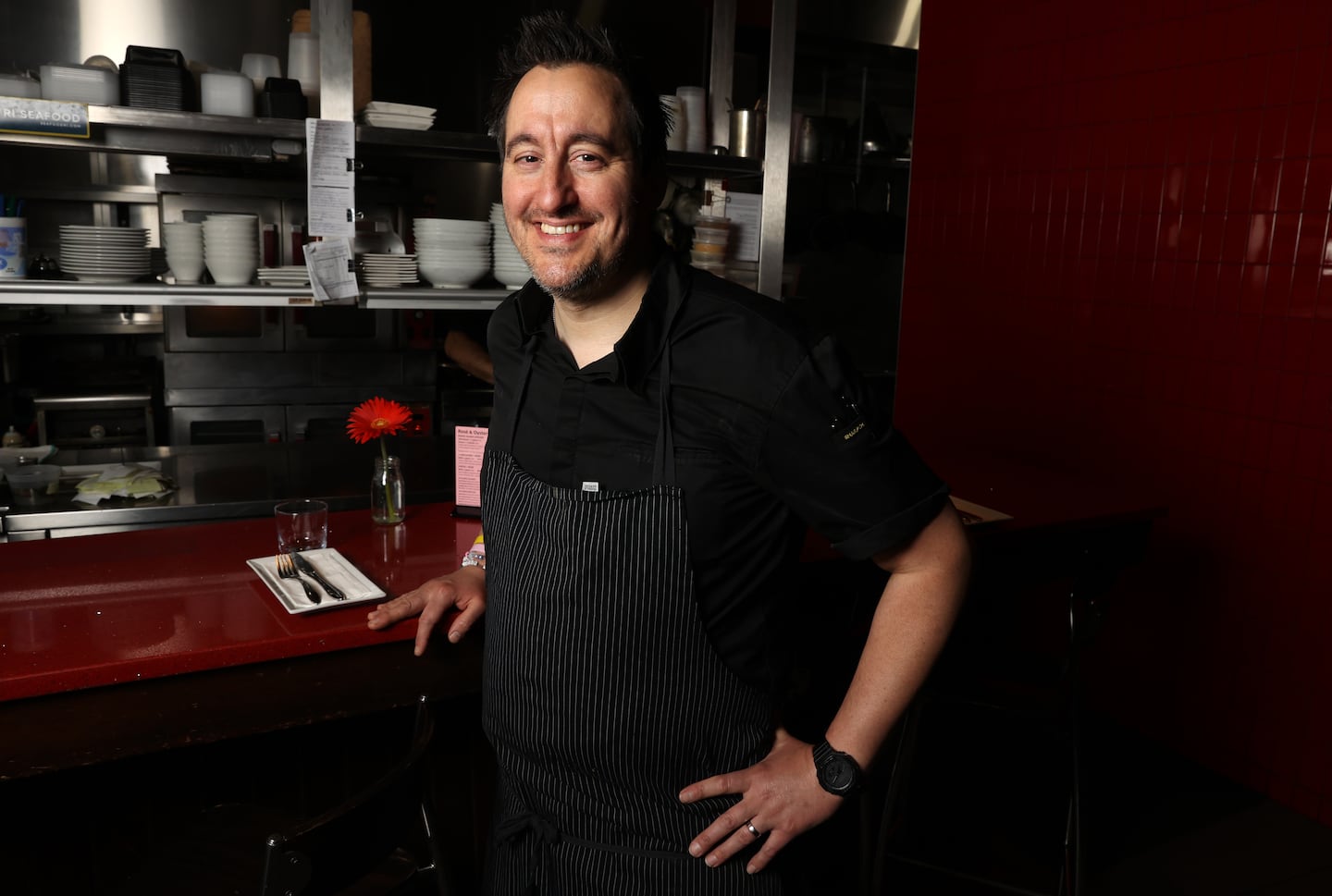 Nicks on Broadway chef and owner Derek Wagner.Jonathan Wiggs/Globe Staff
Nicks on Broadway chef and owner Derek Wagner.Jonathan Wiggs/Globe Staff
Derek Wagner agreed that there’s been a “broadening” of what fine dining means in the years since he opened Nicks on Broadway in 2002. At the time, he wanted it to be a place “where my peers could come and eat — the musicians, students, and the artists — and can experience fine dining in an approachable way.”
Wagner said he crafts his menus to express a sense of place, and today’s fluidity of fine dining’s definition allows chefs like him to be creative in every facet of the dining experience.
He said he’s unsure if a typical fine dining restaurant’s priorities 25 years ago included ethos, staff welfare, farmer welfare, community engagement — all a driving force behind Nicks.
Just a few weeks into service, Claudine is betting on it.
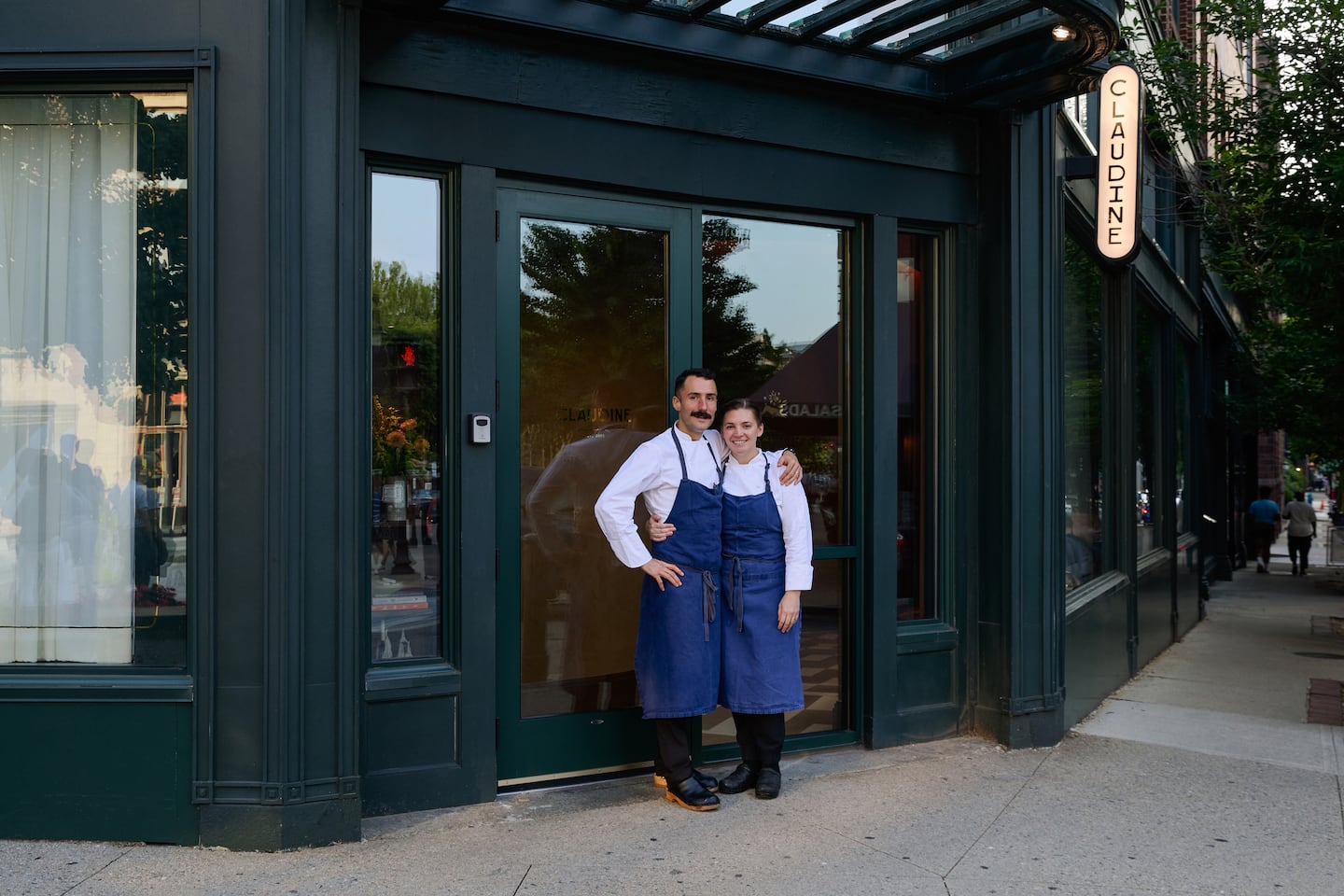 Chefs and co-owners Josh Finger and Maggie McConnell in front of their restaurant Claudine in downtown Providence, R.I.Maurisa Arieta
Chefs and co-owners Josh Finger and Maggie McConnell in front of their restaurant Claudine in downtown Providence, R.I.Maurisa Arieta
The restaurant is the dream of chef-owners Maggie McConnell and Finger, who met at Per Se in New York. McConnell, a Providence native and former pastry chef at The French Laundry, always imagined returning home to open a restaurant.
“Josh and I separately have both dreamed of Claudine our whole lives, and then upon meeting and falling in love, Claudine became a reality,” said McConnell.
McConnell said the word the couple keeps coming back to is “intentionality,” which she explained manifests in everything, including the decor, menu, and beverage service. Every dish is chosen with purpose, and the tasting menu is meant to be conceived as an entire body of work.
“We want everybody to feel like they’re comfortable here,” said Finger. “With fine dining, some people might find it to be stuffy, and that’s one thing that we really want to break down the walls on.”

